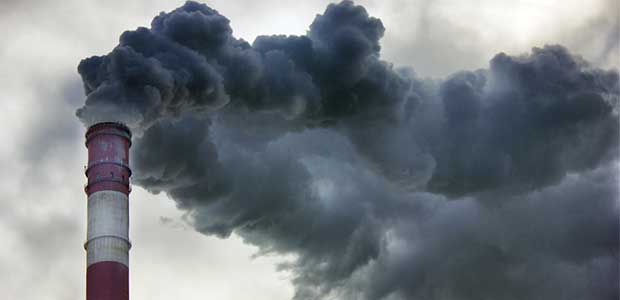
Emissions Declines Set New Records——and Cause Worry
Research suggests that a nearly eight percent in overall fossil fuel use, driven by the coronavirus pandemic, is both record-setting and worrysome.
Global greenhouse gas emissions are on track to drop eight percent for the 2020 year—an “unprecedented” decline, said the International Energy Agency.
While this news seems like it is a good thing (for the planet and climate change at least), experts caution that the drop is actually troublesome. Why? Because they have reason to believe that when the pandemic subsides and nations open up again, emissions could soar and backfire, according to a New York Times article.
The decline in emissions could swing back in a bad way unless governments work to shift to cleaner energy. Plus, experts agree that a pandemic is not a sustainable or good way to address climate change.
“This historic decline in emissions is happening for all the wrong reasons,” said Fatih Birol, the agency’s executive director. “People are dying and countries are suffering enormous economic trauma right now. The only way to sustainably reduce emissions is not through painful lockdowns, but by putting the right energy and climate policies in place.”
Even though the globe is suffering—economically, socially and otherwise—because of the pandemic, the earth has seen a major reduction in its greenhouse gas emissions. The International Energy Agency’s report found that by mid-April, energy use in many countries (especially those shut down because of the virus), energy use was 17 to 25 percent lower than it was in 2019.
Even though U.S. states are beginning to reopen, and China has begun to open up its economy already, the agency projects that carbon dioxide emissions will fall by nearly 2.6 billion tons this year, a nearly eight percent drop from 2019.
According to the article, levels like that would “put global emissions back at levels last seen in 2010, wiping out an entire decade of growth in the use of fossil fuels worldwide.” The drop would be one of the biggest ever recorded—more than those during the global financial crisis of 2009, the Great Depression or the end of World War II.
The decline could be larger if countries remain under lockdown or if many businesses struggle to recover. However, this tit for tat is a tough game to play, as a faster recovery from the virus means a smaller emissions decline.
The article notes that after global crises, emissions usually shoot back up to their “normal” levels once countries and businesses recover. However, if countries like China tries to help their struggling industries like coal or steel, the resulting rebound could be larger than the decline—and nearly no gains would be made.
This happened in the financial crisis of 2010, when global emissions surged back higher than ever before as nations worked to pull themselves out of recession.
One major point of this conversation is the question of how countries will decide to put clean energy at the heart of their stimulus packages—and how they choose to support struggling industries.
Recently, leaders from Germany, Japan, Britain and elsewhere held a video conference urging nations to invest in technology to reduce emissions—such as electric vehicles, solar power, wind power and hydro power. “There will be a difficult debate about the allocation of funds,” said Chancellor Angela Merkel of Germany. “But it is important that recovery programs always keep an eye on the climate.”
Of course, everything involves money. During this pandemic, with emissions low, global road transport down 50 percent and air traffic down over 60 percent, many areas like Saudi Arabia and Texas have seen their drilling and oil companies nearly go bankrupt.
By contrast, wind and solar power have seen a slight uptick in demand during the pandemic, the article reports. Why? The main reason is that many countries are using significantly less fossil fuels to light office buildings, restaurants, movie theatres and more. Because existing wind turbines and solar panels cost little money to operate, they are still operating at almost full capacity—and many are getting priority on electric grids.
However, as experts have insisted: a pandemic like this, even with its decline in emissions, is not enough to tackle global warming. The United Nations said that global emissions would have to fall nearly eight percent “very single year between now and 2030 if countries hoped to keep global warming well below 2 degrees Celsius (3.6 degrees Fahrenheit), which world leaders have deemed necessary for avoiding catastrophic social, economic and environmental damage from climate change.”
Even amid sweeping lockdowns and a decline in emissions, the global economy still relies largely on fossil fuels—especially plants, trucks, planes and cars that continue to operate during the crisis.
If there are limited benefits from this crisis, it’s that large cities like Los Angeles and Milan have seen dramatic decreases in air pollution rates and smog—conditions understood to actually exacerbate a person’s condition should he or she get coronavirus.
“I hope the striking improvements in air quality we’ve seen remind us what things could be like if we shifted to green power and electric vehicles,” said Rob Jackson, an earth scientist at Stanford University.